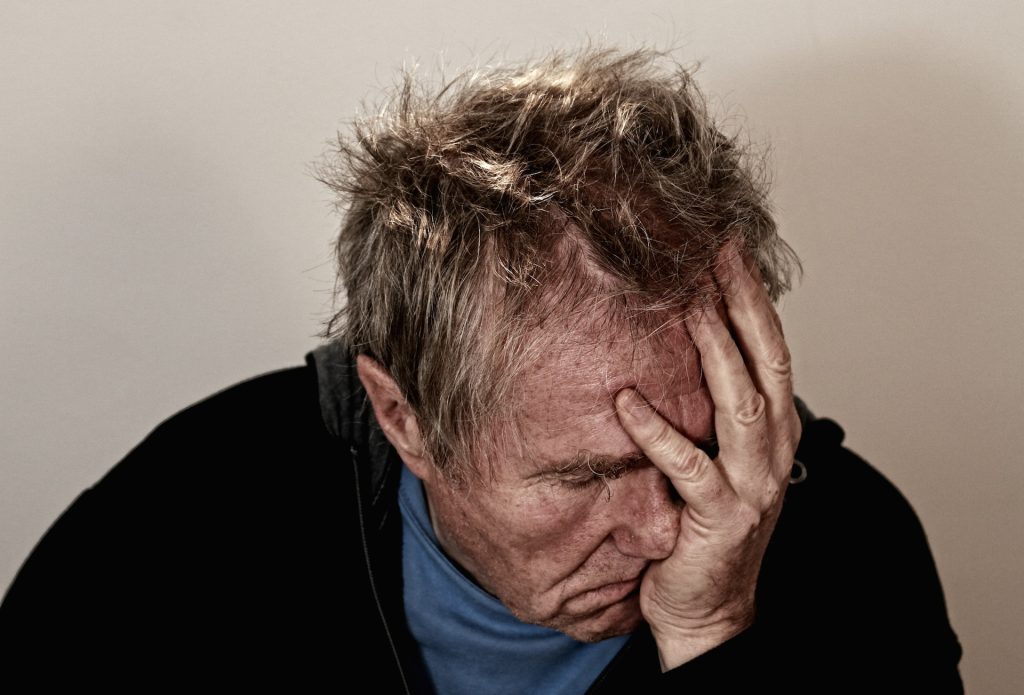Discover the fascinating connection between stress and wrinkles in this insightful article.
Can Stress Lead to Wrinkles? – Exploring the Link Between Stress and Skin Aging
Did you know that stress can go beyond causing sleepless nights and hair-ripping moments? It turns out that continuous stress can have a more visible impact on our appearance, specifically on our skin. The correlation between stress and wrinkles has been a topic of interest for researchers over the years. Let’s dive into the fascinating world of stress and skin aging to uncover the truth behind this connection.
Understanding Stress and Its Effects on the Body

Before we explore the intricate relationship between stress and wrinkles, it’s essential to grasp the basics of stress and how it affects our overall well-being.
Stress is a complex phenomenon that can have profound effects on both our physical and mental health. It is not just a fleeting feeling of being overwhelmed or anxious; it is a physiological response that triggers a cascade of reactions in our bodies.
Imagine a swarm of bees buzzing around your mind while your heart races and your stomach feels like a rollercoaster. That, my friends, is stress. It’s our body’s way of responding to situations that it perceives as threats, whether they are real or simply the result of an overactive imagination.
When stress kicks in, our bodies release a hormone called cortisol. This hormone helps us rise to the occasion when faced with danger, but prolonged exposure to high cortisol levels can wreak havoc on our health.
Cortisol, often referred to as the “stress hormone,” plays a crucial role in regulating various bodily functions. It helps to increase blood sugar levels, suppress the immune system, and aid in the metabolism of fats, carbohydrates, and proteins. In short, cortisol is a key player in our body’s stress response system.
How Stress Impacts Your Overall Health
Chronic stress has been associated with various health problems, such as heart disease, compromised immune function, and even weight gain. The constant activation of the stress response can take a toll on our bodies, leading to a range of physical and mental health issues.
One of the most significant impacts of chronic stress is its effect on our cardiovascular system. When we experience stress, our heart rate increases, and our blood vessels constrict. This response is useful in short bursts, as it prepares us to fight or flee from a perceived threat. However, when stress becomes chronic, it can lead to long-term damage to our cardiovascular health, increasing the risk of heart disease and hypertension.
Furthermore, stress can wreak havoc on our immune system. When cortisol levels remain elevated for extended periods, it suppresses the immune response, making us more susceptible to infections and diseases. This weakened immune system can also slow down the healing process and increase the risk of chronic inflammation.
But can stress also make us look older? Let’s find out.
While stress may not directly cause wrinkles, it can contribute to premature aging of the skin. The constant release of cortisol can lead to a breakdown of collagen and elastin, the proteins responsible for maintaining the skin’s elasticity and firmness. As a result, the skin may appear dull, saggy, and wrinkled.
In addition to collagen and elastin degradation, stress can also disrupt the skin’s natural barrier function. This can lead to increased water loss, dryness, and a compromised ability to protect against environmental aggressors. As a result, the skin may become more prone to irritation, redness, and the formation of fine lines and wrinkles.
Moreover, stress can affect our sleep patterns, leading to inadequate rest and recovery. Lack of sleep can further exacerbate the signs of aging, as it disrupts the body’s natural healing and rejuvenation processes that occur during deep sleep.
It’s important to note that everyone’s response to stress is unique, and some individuals may be more susceptible to its effects than others. However, it is clear that chronic stress can have a significant impact on our overall health and well-being, including our skin’s appearance.
The Science Behind Skin Aging
As much as we wish to turn back the clock, the natural aging process is an undeniable reality. But what exactly happens to our skin as we get older? Let’s explore the science behind skin aging.
When it comes to understanding skin aging, it’s important to consider both the natural aging process and the external factors that can influence it.
The Natural Aging Process of Skin
As the years go by, the production of collagen and elastin, two crucial proteins responsible for maintaining skin elasticity, gradually decreases. This reduction leads to the formation of fine lines, wrinkles, and sagging skin.
Collagen, the most abundant protein in the body, provides structural support to the skin. It helps maintain its firmness and smoothness. Elastin, on the other hand, allows the skin to stretch and bounce back to its original shape. As the production of these proteins declines, the skin loses its ability to maintain its youthful appearance.
In addition to the decrease in collagen and elastin production, other changes occur within the skin as we age. The turnover of skin cells slows down, leading to a buildup of dead skin cells on the surface. This can result in a dull and rough complexion.
The skin also becomes thinner and more fragile with age. The underlying fat cells diminish, causing the skin to lose its plumpness and making it more susceptible to injury.
External Factors Influencing Skin Aging
Beyond the natural aging process, our skin is constantly exposed to external factors that can speed up the formation of wrinkles. Factors like sun exposure, pollution, and smoking can all contribute to premature aging.
Excessive sun exposure is one of the primary culprits of premature skin aging. The ultraviolet (UV) rays from the sun penetrate the skin and damage collagen fibers, leading to the breakdown of these essential proteins. This damage manifests as wrinkles, age spots, and uneven skin tone.
Pollution is another significant factor that accelerates skin aging. Air pollutants, such as particulate matter and chemicals, can penetrate the skin and generate free radicals. These free radicals cause oxidative stress, which damages collagen and elastin fibers, resulting in the appearance of fine lines and wrinkles.
Smoking is yet another detrimental habit that contributes to skin aging. The chemicals in tobacco smoke constrict blood vessels, reducing the blood flow to the skin. This deprives the skin of essential nutrients and oxygen, leading to a dull complexion and the formation of wrinkles.
Furthermore, smoking increases the production of enzymes that break down collagen and elastin, further accelerating the aging process.
Understanding the science behind skin aging can help us make informed decisions about our skincare routine and lifestyle choices. While we may not be able to completely reverse the aging process, adopting healthy habits and protecting our skin from external aggressors can help slow down its effects and keep our skin looking youthful for longer.
Stress and Skin: The Connection
Now that we have a solid understanding of stress and skin aging, let’s dig into the fascinating connection between the two.
Stress is an inevitable part of life, and it affects us in various ways. One of the most intriguing aspects of stress is its impact on our skin. Our skin, being the largest organ of our body, is not immune to the effects of stress. In fact, stress can wreak havoc on our skin, leading to premature aging and a host of other skin problems.

Stress Hormones and Their Impact on Skin
Remember cortisol, the hormone that floods our bodies during stressful situations? Well, it turns out that excessive levels of cortisol can break down collagen and elastin, leading to a loss of skin elasticity and the formation of wrinkles.
Collagen and elastin are the proteins responsible for maintaining the firmness and elasticity of our skin. When cortisol levels are elevated for prolonged periods, it can weaken these proteins, causing our skin to sag and wrinkle prematurely. So, the next time you’re feeling stressed, remember that it’s not just your mind that’s affected, but your skin as well.
Additionally, stress hormones can disrupt the natural balance of oils in our skin, contributing to acne breakouts and dullness. When we’re stressed, our bodies produce more sebum, the oily substance that helps keep our skin moisturized. However, an excess of sebum can clog our pores and lead to the development of acne. Furthermore, the imbalance of oils can leave our skin looking lackluster and dull.
The Role of Oxidative Stress in Skin Aging
Another important player in the stress-skin aging equation is oxidative stress. When we’re under stress, our bodies produce an increased number of free radicals, highly reactive molecules that can damage our skin cells and accelerate the aging process.
Free radicals are unstable molecules that seek stability by stealing electrons from other molecules in our body, including the ones that make up our skin cells. This process, known as oxidative stress, can lead to cellular damage and impair the skin’s ability to repair itself. As a result, our skin becomes more susceptible to fine lines, wrinkles, and other signs of aging.
Moreover, oxidative stress can also trigger inflammation in the skin, further exacerbating skin conditions such as acne, eczema, and psoriasis. The inflammatory response can cause redness, swelling, and discomfort, making our skin appear even more stressed and aged.
In conclusion, the connection between stress and skin is undeniable. The impact of stress hormones on collagen and elastin, as well as the role of oxidative stress in skin aging, highlight the importance of managing stress for the sake of our skin’s health. By adopting stress-reducing techniques and practicing self-care, we can help protect our skin from the detrimental effects of stress and maintain a youthful and radiant complexion.
Stress-Induced Wrinkles: A Closer Look
To better understand how stress contributes to wrinkle formation, let’s take a magnifying glass to the subject.
How Stress Contributes to Wrinkle Formation
Stress-induced wrinkles are not only caused by the breakdown of collagen and elastin. When we’re stressed, our facial muscles tense up, leading to repetitive movements such as frowning or squinting. Over time, these movements can etch lines into our skin, resulting in deep wrinkles.
Differentiating Stress-Induced Wrinkles from Natural Aging
It’s important to note that stress-induced wrinkles may differ in appearance from wrinkles that naturally occur with age. Stress wrinkles tend to be more prominent in certain areas, such as the forehead or around the eyes, where muscle movement is concentrated.
Mitigating the Effects of Stress on Skin
Now that we understand the impact of stress on our skin, it’s time to take action and combat stress-induced aging.
Stress Management Techniques for Healthier Skin
Managing stress is the first step towards achieving healthier skin. Incorporate stress-relief practices into your daily routine, such as meditation, yoga, or engaging in hobbies you love. Remember, taking care of your mind is just as important as taking care of your skin.
Skincare Practices to Combat Stress-Induced Aging
While we can’t eliminate stress entirely from our lives, we can mitigate its effects on our skin by establishing a skincare routine that targets stress-induced aging. Look for products rich in antioxidants, such as vitamin C or retinol, to help combat oxidative stress. Additionally, don’t forget to moisturize and protect your skin from the harmful effects of the sun.
So, the next time life throws a stressful curveball your way, remember that your skin may be feeling the strain too. Take a deep breath, practice stress management, and show your skin some love. After all, a little self-care goes a long way in keeping those wrinkles at bay!







Can you be more specific about the content of your article? After reading it, I still have some doubts. Hope you can help me.
Can you be more specific about the content of your article? After reading it, I still have some doubts. Hope you can help me.